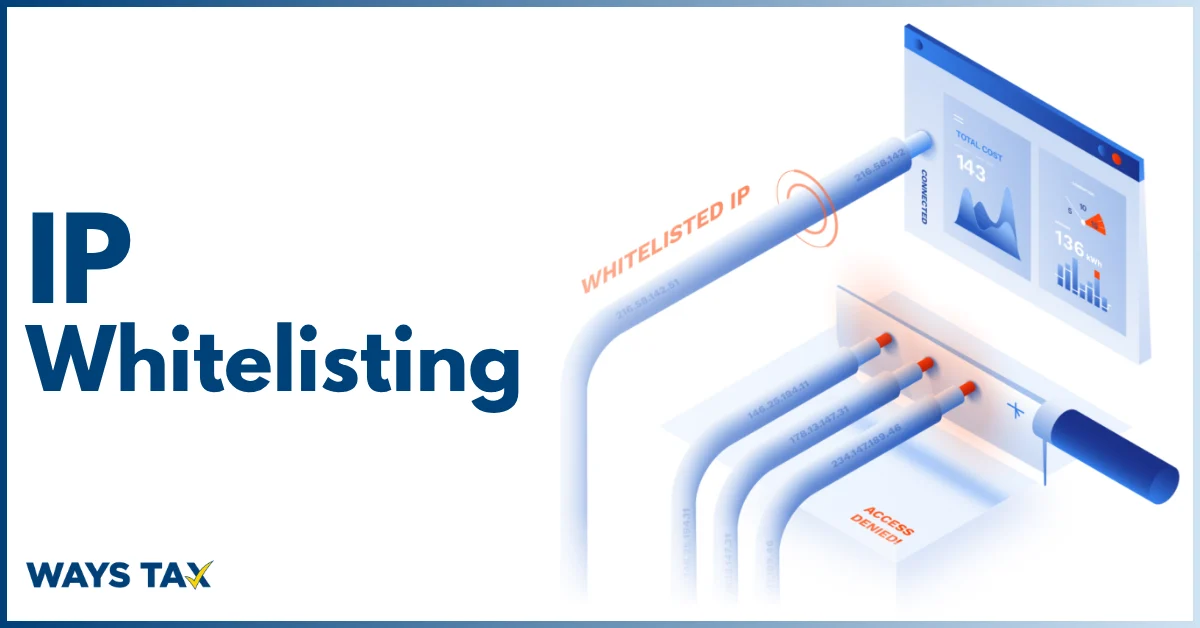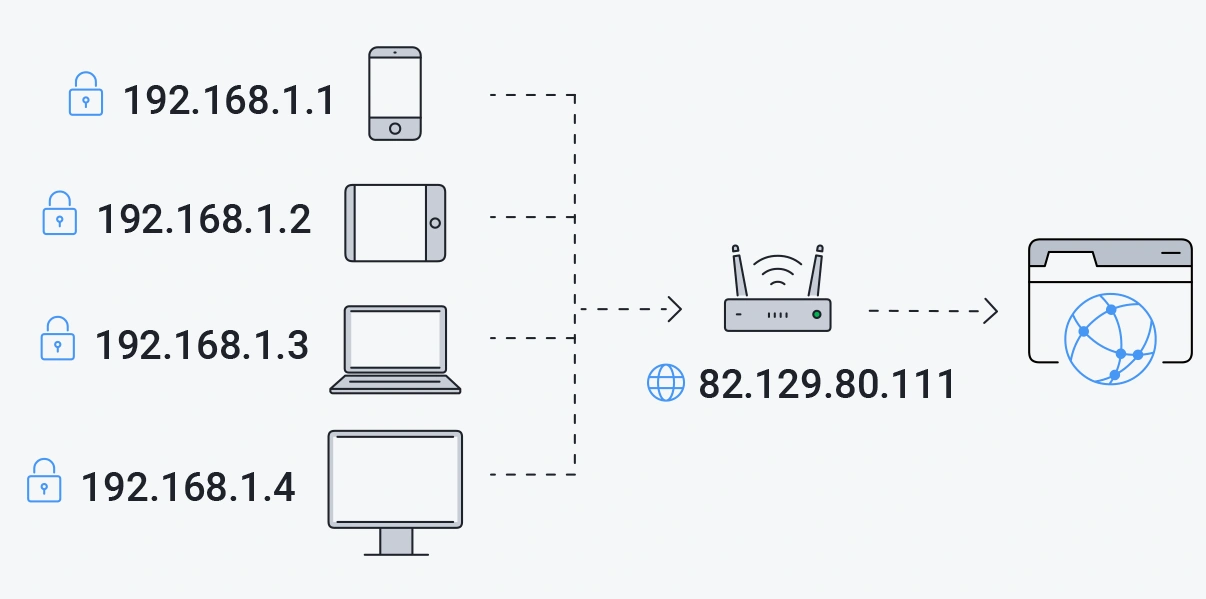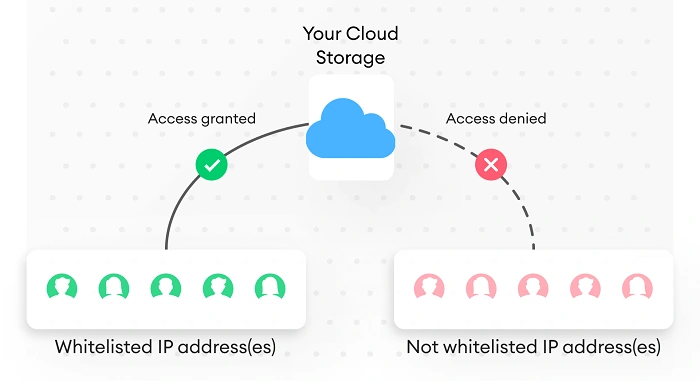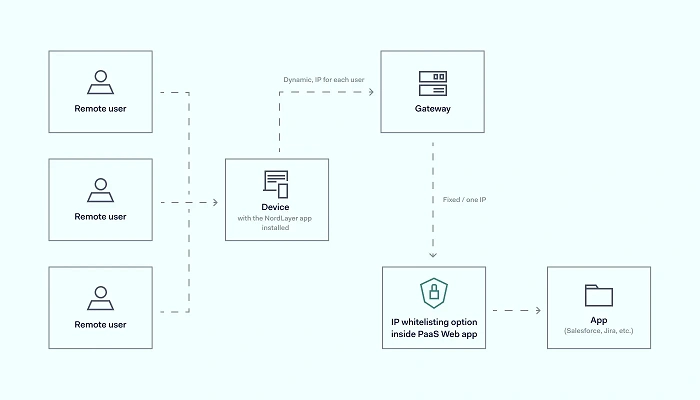
IP Whitelisting Service in Pakistan – Secure Your System with Trusted Access
Do you want to keep your system safe from unknown people? IP whitelisting can help you do that. With our IP Whitelisting service, only trusted users will be able to access your network, software, or tools, keeping your data safe and your business secure.

Need Help with PTA IP Registration?
We’ll manage your application, documents, and setup – so you can focus on your work.

IP Whitelisting Meaning
IP Whitelisting PTA means getting official permission from PTA so your IP address can be used legally in Pakistan , especially for:
Types of Whitelisting
Whitelisting means you only allow trusted things and block everything else. Here are the common types:
1. Application Whitelisting
You allow only safe and approved apps to run on your computers. This blocks all other apps and stops harmful software.
2. Email Whitelisting
You choose which email addresses or domains can send you emails. This helps you avoid fake or scam emails.
3. IP Address Whitelisting
You allow only specific IP addresses to access your system. This blocks all other users from connecting.
4. URL Whitelisting
You let users open only trusted websites. This keeps harmful or time-wasting websites blocked.
5. Device Whitelisting
You allow only selected devices to connect to your network. This stops unknown or unsafe devices from joining.
Why is IP Whitelisting Important?
Here are some simple benefits:
What is an IP Address?

An IP address is a special number given to every device (like a mobile, computer, or Wi-Fi) that connects to the internet.
It looks like this:
It helps your device send and receive data over the internet.
There are two types:
Also:
How to Whitelist an IP Address
You need to go into your system or software settings and do the following:
- Find the IP address you want to allow
- Open your network settings
- Add that IP address to the whitelist
- Save the settings
- Done!
Note: Each system (Windows, Linux, or a website platform) may have different steps.
What are IP Packets?
When your device sends data over the internet, it breaks the data into small parts called packets.
Each packet has:
These packets travel and join together again when they reach the other person’s device.
How Does IP Whitelisting Work?

Let’s say you only want your office team to open your software.
You make a list of their IP addresses and add them to your system.
Now, only those people with those IP addresses can open the software.
If someone else tries to open it, they’ll be blocked.
IP whitelisting blocks:
Whitelisting vs Blacklisting: What is the Difference?
| Feature | Whitelisting | Blacklisting |
| Default Behavior | Deny All, Allow Specific | Allow All, Block Specific |
| Security Level | Higher | Lower |
| Use Case | Sensitive systems or remote access | General browsing restrictions |
Where to Apply for IP Whitelisting?
You can apply for IP Whitelisting and VPN registration online, no need to visit the PTA office!
Required Documents (As per your type of use)
1. VPN for Companies
2. VPN for Freelancers
3. Call Centers
Don’t have a certificate yet? Register your software company in Pakistan to get your PSEB approval and start the process.
4. Video Conferencing (for Organizations or Govt)
How to Apply for Call Center IP Whitelisting
If you are running a Call Center, follow these steps:
- Send an email to: ipreport@pta.gov.pk
- Use the PTA’s official format for IP whitelisting
- Attach the following:
- Valid CNIC
- Provisional Registration Certificate from PSEB
- LDI/LLO license (if required)
- PTA’s Vigilance Directorate will check your request
- Once approved, they will officially whitelist your IP after getting your Valid Registration Certificate from PSEB
Important Notes:
Challenges of IP Whitelisting

1. Works Better for Small Networks
IP whitelisting is easier to manage when your business has only a few people or a small team. If your company has many users and devices, it becomes very hard to keep the list updated.
In big companies, some users may get blocked or unknown users may enter the system without being noticed.
2. IP Addresses can be Copied by Hackers
Some smart hackers can find out which IP addresses are allowed. They can copy those addresses to enter your system.
This is called IP spoofing. IP whitelisting does not check where the IP address is really coming from.
That is why companies should also use other security methods like two-step verification or checking the device being used.
3. Dynamic IP Addresses are not Suitable
Some internet companies give IP addresses that change every time the user connects. These are called dynamic IPs.
If your IP keeps changing, you cannot be on the whitelist permanently. You will need to ask the admin to update your IP every time, which is not practical.
4. It can Block your Own Team During Emergencies
Sometimes your team may face an emergency and need quick access. But if their IP is not on the whitelist, they will also be blocked.
This can slow down your work. So you must have a backup plan in such situations, so your team can still get access without risk.
Where IP Whitelisting Is Useful in Business
Even with these challenges, IP whitelisting is very useful for businesses, especially when they want to protect their system and control who can access it.
1. To Control Access to the Company Network
Companies can allow only selected IP addresses to connect to their internal system. This is usually done using a firewall. It works well if all employees use static IP addresses that do not change.
2. To Manage Access to Cloud Software
Businesses use many online tools like CRMs and HR software. These tools store company data. So it is important to make sure only your team can log in. IP whitelisting helps allow only safe users to access these apps.
3. For Employees Working from Home
When your staff works from home, you want to make sure only their devices can connect to your system. IP whitelisting allows only those internet addresses to access the system. This reduces the risk of unknown people trying to enter.
4. To Protect Smart Devices
Smart devices like security cameras or sensors are hard to protect because they do not have strong passwords or two-factor login. But you can use IP whitelisting to allow only safe systems to connect with them.
5. To Create a Strong Security System
IP whitelisting can also be used with other security tools like VPN, single sign-on, or two-factor login. This helps make your business network safer by adding more layers of protection.
How Our IP Whitelisting Service Works: Our 5 Steps Process
At Waystax, we make IP Whitelisting simple and effective. Here’s how we do it:
- Understand Your Needs: We study your system and assess your needs.
- Identify Trusted IPs: We help you choose the right IPs to whitelist.
- Set Up Whitelisting: Our team configures the settings in your software, cloud, or network.
- Test & Secure: We test everything to make sure only allowed IPs get access.
- Ongoing Support: Need to add or remove IPs later? We are here to help.
Who Is This Service For?

Our IP Whitelisting service is perfect for:
Benefits of Choosing Waystax for IP Whitelisting
Better Data Security: Peace of mind knowing only trusted users have access
Protect Your System with Trusted Access
Whether you’re freelancing, managing a call center, or running a remote team – we’ve got you covered

Benefits of IP Whitelisting
IP whitelisting is a simple and smart way to improve your business security. Here are some easy-to-understand benefits:
1. Easy to set up:
You can improve your security in just a few steps. No need for complex systems.
2. More security:
Only trusted IP addresses can enter your network. All others are blocked by default.
3. Better control:
You decide who can and who cannot access your data or systems. This stops unwanted access.
4. Clear visibility:
You always know who is using your system. You stay in control.
5. Save money:
You don’t need to spend a lot on expensive security systems. You can use the public internet safely with whitelisting.
Drawbacks of IP Whitelisting
Although IP whitelisting is helpful, it also has a few problems—especially if you have many users or employees.
1. Takes time and effort:
You must add each IP address one by one. This can take time, especially in big companies.
2. Hard to manage:
If someone’s job or location changes, you have to update their IP address manually. Doing this again and again can be tiring.
3. Too strict or too loose:
If your rules are too strict, it can slow down work. If they are too soft, your system can become less secure.
Let’s Secure Your System Today
Don’t wait for a security breach to happen. Protect your business today with our IP Whitelisting service in Pakistan.

